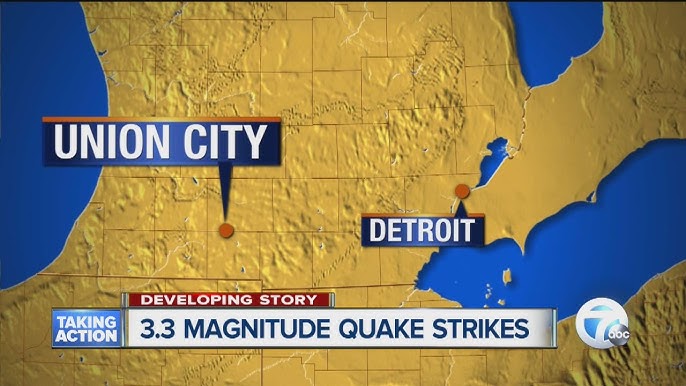Senator Joe Manchin’s recent announcement to leave Congress after 15 years has stirred considerable attention across political circles. Known for his moderate views and often being a crucial swing vote, Manchin’s departure is set to have significant implications on both the Senate and the broader political landscape. His criticism of the Democratic Party, which he labels as ‘toxic,’ and his blame on progressives, are shaping the future of U.S. politics.
In this blog, we will delve into Joe Manchin’s decision to leave Congress, exploring the various factors that led to this significant move. We will examine his reasons for stepping down, the tensions within the Democratic Party that contributed to his frustration, and the evolving political dynamics in the Senate.
Additionally, we’ll analyze the potential consequences of his departure for both the future of the Democratic Party and the American electorate. Manchin’s exit could reshape Senate power balances, influence key policy debates, and possibly redefine how moderates and progressives navigate the U.S. political landscape moving forward.
Who is Joe Manchin?
Joe Manchin is a Democratic Senator from West Virginia, who has served in the Senate since 2010. Prior to his Senate career, he was the Governor of West Virginia from 2005 to 2010. Throughout his political career, Manchin has been recognized for his moderate stance, often standing in contrast to the more progressive wings of his party. Known for his centrist views, Manchin has consistently positioned himself as a voice of reason in a divided Congress.

His voting record reflects his independent-minded approach, as he has frequently crossed party lines on key issues. Joe Manchin’s ability to maintain a balance between his party’s interests and those of his constituents has allowed him to remain a dominant political figure in West Virginia. However, this approach has also earned him significant criticism from both his party’s progressive base and Republican opponents.
The ‘Toxic’ Democratic Party: Manchin’s Criticism
Joe Manchin’s recent statement about the Democratic Party being ‘toxic’ is not just an isolated remark but reflects his growing disillusionment with his own party. According to Manchin, the Democratic Party has increasingly drifted leftward, leaving little room for moderate voices like his own. This shift, according to Manchin, has contributed to the dysfunction within the party and its inability to unify on critical issues.
One of the key elements of Joe Manchin’s critique revolves around the growing influence of progressive Democrats who advocate for policies such as the Green New Deal, Medicare for All, and defunding the police. For Manchin, these progressive ideals are not just politically unfeasible but also disconnected from the realities faced by many Americans, particularly in more conservative areas like West Virginia.
Manchin has consistently positioned himself as a moderate who is willing to work across the aisle, but he has become increasingly frustrated by what he sees as the Democratic Party’s focus on extreme policies that alienate centrist voters. His departure from Congress seems to be a culmination of these tensions, as he feels that the current political climate no longer aligns with his values or his vision for the country.
Blaming Progressives: The Tipping Point
In his public statements, Joe Manchin has been particularly vocal about the role progressives play in the party’s internal strife. He has argued that the left wing of the party has pushed it too far to the extreme, making it difficult for centrist Democrats to make their voices heard. Manchin has often criticized the progressive agenda for focusing too heavily on ideology rather than pragmatic solutions that appeal to the broad spectrum of voters.
The issue came to a head during the debates surrounding President Biden’s Build Back Better agenda, which included several progressive proposals such as expanded social welfare programs and climate change initiatives. Manchin’s opposition to these proposals, particularly in their more expansive forms, has placed him in direct conflict with progressive Democrats who viewed his stance as an obstacle to achieving their policy goals.
In his recent remarks, Joe Manchin pointed to the growing ideological divide between the moderate and progressive wings of the party as one of the primary reasons for his decision to leave Congress. He believes that the progressive faction of the party has become increasingly intolerant of differing opinions, making it difficult for moderates like himself to continue to be effective within the political system.
The Future of the Democratic Party Without Manchin
Manchin’s departure from Congress will undoubtedly have far-reaching implications for the Democratic Party. For years, he has been a key figure in the Senate, especially in the absence of a filibuster-proof majority. His centrist positions have made him a crucial swing vote on many significant pieces of legislation, and his departure could tip the balance in the Senate, potentially shifting the legislative agenda in a more progressive or conservative direction depending on his replacement.

The loss of Joe Manchin’s moderating influence could also exacerbate the divide within the Democratic Party. His absence may lead to an even stronger progressive shift, as those on the left will no longer have to contend with a moderate senator blocking their key proposals. On the other hand, his departure could signal to centrist voters that the party is no longer interested in their concerns, further alienating a key demographic.
In the upcoming election cycles, the Democratic Party will have to decide how to address the vacuum left by Joe Manchin’s exit. Will they double down on progressive policies, or will they seek to bring more moderate voices back into the fold? The answer to this question could shape the future of the party for years to come.
Impact on the 2024 Election and Senate Control
The timing of Joe Manchin’s decision to leave Congress could have a significant impact on the upcoming 2024 election. If Joe Manchin’s seat becomes vacant before the election, it could trigger a special election in West Virginia, a state that has become increasingly conservative in recent years. Given Manchin’s popularity in the state, his departure could lead to a bitter battle for control of the seat, with the potential for a Republican victory.
The loss of Manchin’s seat would also have broader implications for Senate control. The Senate is currently divided 50-50, with Vice President Kamala Harris serving as the tiebreaker. Manchin has been a key figure in ensuring that the Senate remains in Democratic hands, but without him, the Democrats could face significant challenges in passing legislation.
Additionally, the absence of a moderate voice in the Senate could lead to more polarization in the legislative process. Without Joe Manchin’s willingness to work across party lines, passing major legislation could become even more difficult, further exacerbating gridlock in Washington.
Manchin’s Legacy: A Senator of Contradictions
Joe Manchin’s political career has been one of contradictions. On the one hand, he has been a staunch defender of traditional Democratic values, such as social safety nets and healthcare reform. On the other hand, he has often sided with Republicans on key votes, especially when it comes to fiscal policy and climate change. This has made him both a hero and a villain in the eyes of different factions of the Democratic Party.
Despite his often controversial stances, Joe Manchin’s legacy will likely be that of a pragmatist who sought to find common ground in an increasingly polarized political environment. His departure from Congress marks the end of an era for the Democratic Party, one that was defined by the balancing act between progressivism and moderation.

Joe Manchin’s decision to leave Congress could also signal a shift in the political landscape as a whole. As political ideologies become more entrenched, and compromise becomes harder to achieve, Joe Manchin’s exit may serve as a cautionary tale about the dangers of extreme polarization. His departure highlights the increasing difficulty of maintaining a centrist or moderate position in a political environment that often favors ideological extremes.
For years, Joe Manchin was one of the few remaining figures who bridged the divide between the left and right, but with his exit, the political center may continue to erode, leading to further gridlock and division in Washington. This trend could exacerbate the already growing disconnect between politicians and the broader American public, many of whom seek more pragmatic, solution-oriented approaches to governance. Ultimately, Joe Manchin’s decision underscores the risks of a political system that prioritizes party loyalty over collaboration and consensus-building.
The End of an Era
Joe Manchin’s decision to leave Congress after 15 years is a seismic shift in the political landscape of the United States. His departure reflects the growing tensions within the Democratic Party, particularly between moderates and progressives. Joe Manchin’s criticism of the party as ‘toxic’ and his blame on progressives signal the challenges the party faces in reconciling its various factions.
As the 2024 elections approach, the loss of Joe Manchin moderating influence in the Senate could have significant consequences for both the Democratic Party and the broader legislative process. Joe Manchin legacy as a pragmatist who sought compromise in a divided Congress will be remembered, but his departure also underscores the challenges facing both parties in an era of increasing political polarization.
The future of the Democratic Party and the Senate will depend on how they navigate the shifting political terrain left in Joe Manchin’s wake. Will they lean further left, or will they seek to recapture the center? Only time will tell, but one thing is clear: Joe Manchin’s exit marks the end of an era in American politics.















